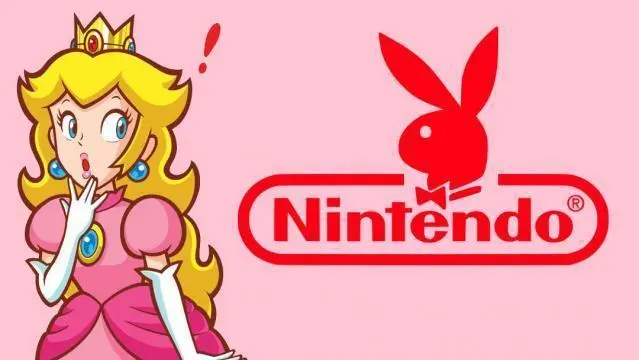As we reported earlier today, Nintendo invited Playboy Playmates Amelia Talon and Pamela Horton to the Treehouse to play the upcoming third-person shooter game, Splatoon.
This is not the first time that Nintendo has teamed up with the Playboy mansion. To promote Bayonetta 2, Nintendo commissioned a questionably tasteful nude Bayonetta Playboy spread. One collaboration could be considered a reasonable PR move, but two team-ups suggests a method to the madness. So why does Nintendo keep doing this?
The first answer is easy:
This may be to attract male gamers to the WiiU console which hasn’t been favored by self-identifying “hardcore” gamers. Splatoon is a third-person shooter with heavy emphasis on the online multiplayer. Having playmates show-off the game appeals to the often male-oriented competitive online gamer demographic that could really boost Splatoon’s popularity and sales.
The more complicated answer lies with Nintendo’s branding as a company, starting all the way back with the release of the original Wii. The seventh-generation console released before the PlayStation 3 and Xbox 360 moving away from the graphic realness of the other two systems.
Instead, the unique features of the Wii – the wand controllers and motion technology – made it the family oriented console we never knew we wanted. My entire non-gaming family got pretty obsessed with Wii Sports for several holidays.
Games with local multiplayer, in addition to the already family friendly IPs of Mario, Link, and Kirby cemented the Wii as a the family console.
What About Nintendo Being Family Friendly?
This branding of the Wii (and now the WiiU) is just an extension of Nintendo’s own company branding. In 2013 when the company learned that people were using a 3DS app called Swapnote to exchange questionable pictures, they disabled the SpotPass service in Swapnote. Nothing questionable (re: sexual) would be happening on a Nintendo device!
While the family-friendly branding helped Nintendo in the seventh-generation console wars, it has since become a double-edged sword. When Nintendo was faced with a fan-made petition to allow same-sex marriage in Tomodachi Life, for instance, the company at first blundered to respond.
Nintendo never intended to make any form of social commentary with the launch of Tomodachi Life. The relationship options in the game represent a playful alternate world rather than a real-life simulation.
This statement overlooked the fact that Tomodachi Life, a game about marriage and relationships between Miis, was obliquely making social commentary by not allowing same-sex characters to marry.
Of course, Nintendo went on to re-apologize and promised to include same-sex marriage in future installments of Tomodachi Life games. However, this incident demonstrates the company’s idea (circa 2014) of what “family” means, hetero couples with kids like you can see in this WiiU Holiday commercial.
So what does any of this family-friendliness have to do with Nintendo’s current relationship with the Playboy Mansion? Well, playing with Playboys allows Nintendo a chance to briefly jump outside their family-friendly branding without actually getting mired in socio-political nonsense.
Nintendo gets to walk on the wild side, secure in the knowledge that it can return to the safety of the Treehouse at any time.








Published: Mar 26, 2015 07:36 am